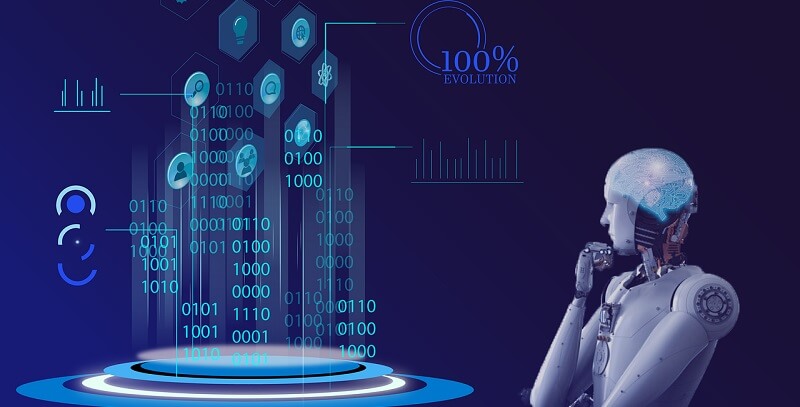The field of artificial intelligence (AI) and machine learning has witnessed remarkable advancements in recent years. Traditional deep learning techniques, particularly Convolutional Neural Networks (CNNs), have played a pivotal role in various applications. However, they have certain limitations that hinder their ability to capture spatial relationships between features in an image. To overcome this challenge, researchers have introduced Capsule Networks, which offer a promising solution to enhance the capabilities of AI systems.
Limitations of traditional deep learning techniques, particularly with CNNs
As powerful as CNNs may be, they fall short in capturing the intricate spatial relationships between different features within an image. While CNNs excel in detecting individual features, they lack the ability to understand the holistic context when these features are combined. This limitation poses challenges in processing complex patterns and accurately recognizing objects from different perspectives.
The problem of capturing spatial relationships between features in images
In traditional CNNs, individual neurons are responsible for detecting specific features. However, they overlook the important spatial relationships between these features, leading to an incomplete understanding of the overall image. To address this drawback, Capsule Networks take a new approach by incorporating more sophisticated methods for capturing spatial relationships.
The concept of Capsule Networks and their attempt to overcome limitations in spatial relationships
Capsule Networks represent a paradigm shift in AI and deep learning. Instead of relying on individual neurons, Capsule Networks use “capsules” – groups of neurons that work collectively to represent and recognize complex patterns. These capsules encapsulate various properties, such as position, orientation, and scale, while maintaining a structured spatial hierarchy to efficiently capture relationships within an image.
The use of capsules, groups of neurons, to represent and recognize complex patterns
Capsules serve as the building blocks of Capsule Networks. Each capsule in the network learns to capture and represent specific entities or features within an image. By considering both the presence and properties of these entities, capsules provide a more holistic view, enabling a better understanding of the image’s contents. This hierarchical representation structure allows the network to capture even the most intricate spatial relationships and dependencies.
Advantages of Capsule Networks over CNNs include robustness to object position, orientation, and scale changes
One of the most significant advantages of Capsule Networks is their robustness to variations in object position, orientation, and scale. Traditional CNNs struggle with detecting objects when they are rotated, scaled, or appear in different locations within an image. In contrast, Capsule Networks can handle these challenges effectively by explicitly modeling the spatial relationships between features, providing a more accurate and reliable recognition mechanism.
There is a reduced need for training samples and computational resources in Capsule Networks
Capsule Networks offer a notable advantage in terms of efficiency. Due to their ability to understand complex patterns and relationships with fewer training samples, they require fewer labeled data points, reducing the time and resources needed for training. This advantage is particularly crucial in scenarios where obtaining a large labeled dataset is difficult or costly.
Application of capsule networks in addressing the issue of adversarial attacks
One of the major concerns with traditional deep learning techniques is their vulnerability to adversarial attacks. Adversarial attacks involve making subtle modifications to an input image, causing AI systems to misclassify or exhibit unexpected behavior. Capsule Networks have shown promise in addressing this issue. By modeling hierarchical relationships, Capsule Networks exhibit a more robust behavior and resistance to adversarial perturbations, making them a potential solution for improving security in AI applications.
Comparison of resilience to adversarial attacks between Capsule Networks and CNNs
In recent studies, Capsule Networks have demonstrated greater resilience to adversarial attacks compared to CNNs. These attacks often involve adding imperceptible noise or perturbations to an input image to deceive the AI system. While CNNs can be easily fooled by such perturbations, Capsule Networks exhibit a higher level of resistance due to their ability to capture the structural dependencies and relationships between features.
Challenges in training and optimizing the complex architecture of Capsule Networks
Despite the numerous advantages of Capsule Networks, they present challenges in training and optimizing their more complex architecture. Capsule Networks require more sophisticated optimization techniques and a larger number of computational resources compared to traditional CNNs. Researchers are actively working to develop more efficient training algorithms and improve computational efficiency to overcome these challenges.
Future prospects and the potential revolution of AI applications through Capsule Networks
Capsule Networks represent a groundbreaking development in AI research, offering a promising future in revolutionizing AI applications. With their ability to capture spatial relationships and resist adversarial attacks, Capsule Networks have the potential to enhance the performance, reliability, and security of AI systems. Ongoing research and advancements in training techniques will likely further bolster the capabilities of Capsule Networks, making them a vital component in shaping the future of AI.
Capsule Networks present a new and exciting direction in the field of AI and machine learning. By addressing the limitations of traditional deep learning techniques, particularly in capturing spatial relationships, Capsule Networks provide a more comprehensive understanding of complex patterns within images. With their robustness to object position, orientation, and scale changes, reduced need for training samples, and resilience against adversarial attacks, Capsule Networks offer a promising solution for advancing AI technologies. As research progresses and optimization challenges are overcome, Capsule Networks are poised to revolutionize AI applications, opening doors to new possibilities and advancements in the field.

